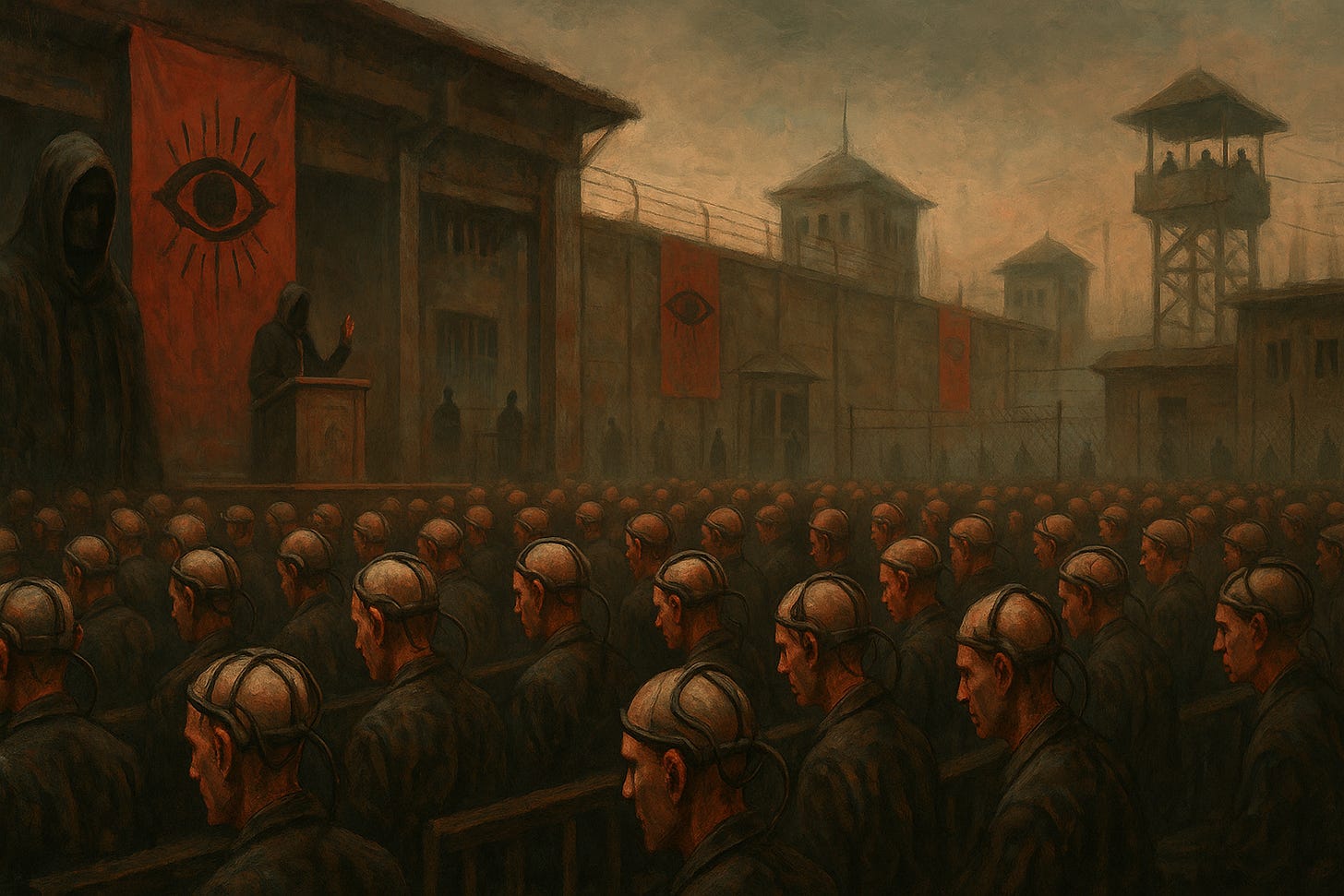Cult Indoctrination: Echoes Of MKUltra
Religious and Authoritarian Cults
Cult indoctrination, brainwashing, and coordinated harassment tactics like gangstalking represent systematic methods of psychological control that leave lasting scars on mental health. These practices, exemplified by Scientology’s “Fair Game” policy and historical programs like MKUltra, exploit human vulnerability through isolation, fear, and identity erosion, revealing disturbing parallels in their disregard for individual autonomy.
Cult Indoctrination and Brainwashing Techniques
Cults and authoritarian groups deploy coercive persuasion to dismantle personal agency. Common tactics include isolation and environmental control, like cutting off members from external social networks and familiar routines to create dependency and promote immersion in the group. Social conditioning through repetitive rituals, chanting, propaganda exposure, sleep deprivation, destabalization induces suggestibility. Guilt and shame manipulation, such as forced self-denigration through confession sessions or public humiliation, serve to break resistance. Group doctrine is elevated above individual experience, eroding authentic identity and fostering existential dependence. Scientology’s Rehabilitation Project Force (RPF) exemplifies institutionalized brainwashing, with members undergoing forced labor, solitary confinement, and ideological retraining to purge dissent, mirroring historical re-education camps.
Self-Improvement Cults
Self-improvement cults are a particularly insidious form of high-control group. They present themselves as pathways to personal growth, empowerment, or enlightenment, but often use the same manipulative tactics as religious or political cults. Charismatic leaders promise transformation and success, demanding unquestioning loyalty and conformity. These groups often isolate members from outside influences, use love bombing to foster dependence, and enforce ideological purity by shaming or punishing doubt or dissent.
Notorious examples include NXIVM, which operated under the guise of self-help but engaged in extreme abuse, including sex trafficking and branding, and organizations like The Landmark Forum, which has been described by former members as abusive and isolating. Self-improvement cults can be harder to identify than religious or political cults because their language and practices often mirror mainstream self-help movements, making their harmful impact slower to emerge.
Gangstalking and the “Fair Game” Doctrine
Scientology’s Fair Game policy codifies retaliation against perceived enemies, employing coordinated harassment, legal warfare, and character assassination. Private investigators and members sabotage critics’ careers and relationships, while frivolous lawsuits are used to drain targets financially and psychologically. Smear campaigns aim to isolate victims socially. These tactics align with gangstalking, where groups systematically harass individuals to induce paranoia and helplessness. Victims often report anxiety, depression, and social withdrawal as a result of these campaigns.
Personal Perspective: The Psychological Toll
Having experienced similar tactics firsthand, including those potentially related to sex trafficking and trauma exploitation as discussed previously, I can say that the psychological impact is deeply damaging. The constant barrage of suspicion, subtle threats, and social isolation wears down even the most resilient person. If you show any sign of weakness or distress under this pressure, it is often used against you. Shame and ridicule become further tools to undermine your confidence and sense of self. Over time, it becomes difficult to trust your own perceptions, and the world can start to feel unsafe and unpredictable. Because it is.
Mental Health Consequences
The psychological toll of these methods is profound. Prolonged indoctrination replaces personal beliefs with group dogma, causing confusion and dissociation. Survivors struggle with conflicting realities, leading to anxiety, hypervigilance, and emotional numbness. Children in cults internalize shame, suppress needs, and face abuse, resulting in lifelong interpersonal difficulties.
Echoes of MKUltra
The CIA’s MKUltra program (1953–1973) shared core objectives with cult brainwashing: breaking individuals via unconsented LSD dosing to destabilize cognition, sensory deprivation and torture to erase resistance and implant compliance, and institutional betrayal (exploiting trust in organizations to mask abuse). While MKUltra sought military-grade mind control, cults and Fair Game-style harassment achieve similar ends through social engineering, demonstrating a universal vulnerability to systemic psychological warfare.
Supporting Targets of Gangstalking
For those who suspect someone is being targeted by gangstalking or similar tactics, there are ways to help:
•Documentation and Evidence: Maintain detailed logs of incidents (dates, times, witnesses) to expose patterns and validate experiences. Preserve digital evidence (texts, emails, social media posts) and, if necessary, request police reports for legal leverage.
•Safety Planning: Implement physical safeguards such as secure housing, varied routines, and trusted emergency contacts. Use code words with allies to signal distress without alerting perpetrators.
•Institutional Advocacy: Seek legal counsel to counter frivolous lawsuits or defamation, citing precedents like Wollersheim v. Scientology. Contact victim support organizations for crisis intervention and resources.
•Mental Health Strategies: Trauma-informed therapy can help rebuild self-trust disrupted by gaslighting, using modalities like CBT to counter cognitive dissonance. Support groups reduce isolation, offering validation often denied by broader society.
•Community Education: Educate workplaces, schools, and local agencies about gangstalking’s tactics to preempt smear campaigns. Share resources like stalking incident log templates to standardize documentation for legal use.
Gangstalking and cult indoctrination, including those disguised as self-improvement, weaponize systemic power imbalances to silence dissent and exploit vulnerability. As both a survivor and advocate, I’ve seen how combining legal action, community education, self-awareness and psychological support can disrupt these cycles. While the scars of exploitation persist, strategic resistance, rooted in evidence and community support, offers a path to reclaim agency.
If you are a targeted person, please know that you are not alone, and feeling “crazy” is by design. Reach out if you need an advocate, and I will be there to hear and support you. ୨ৎ


